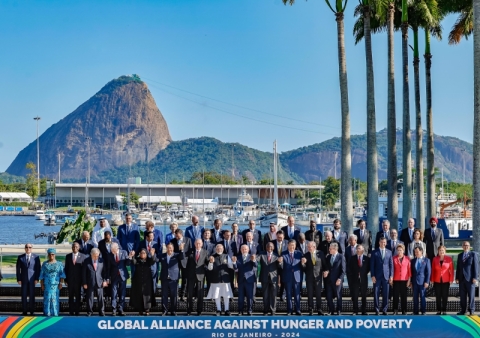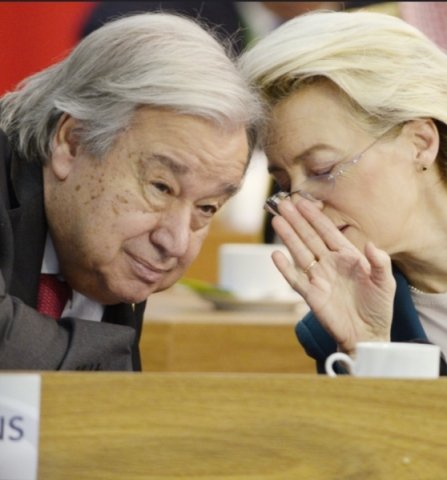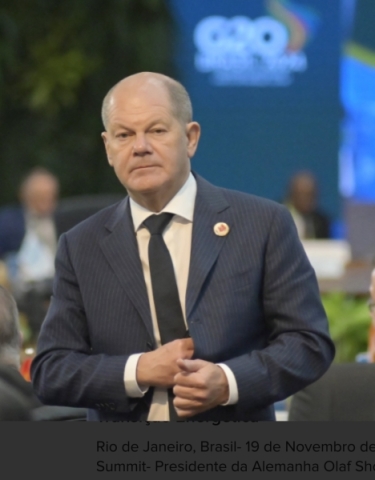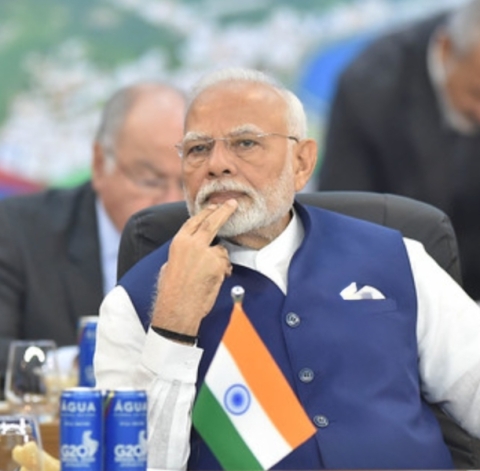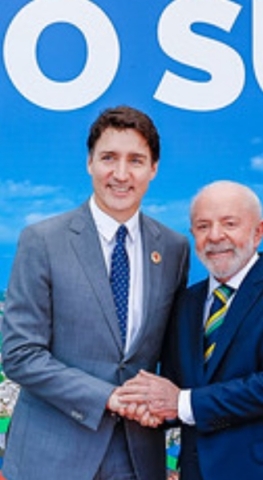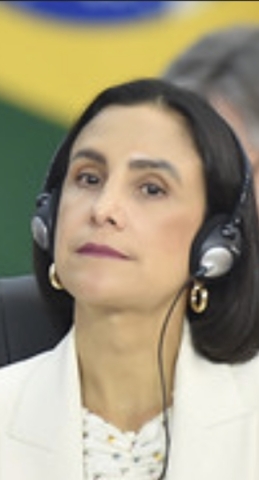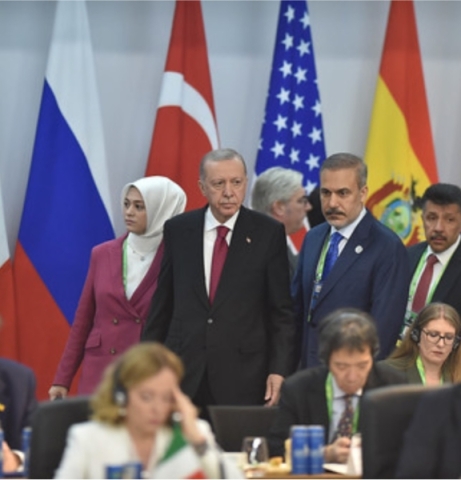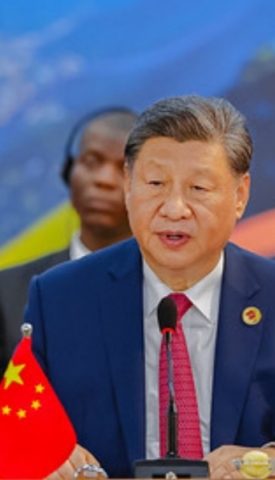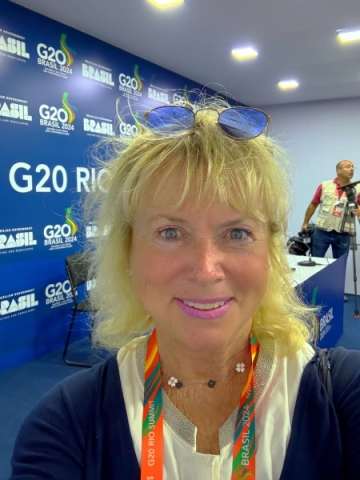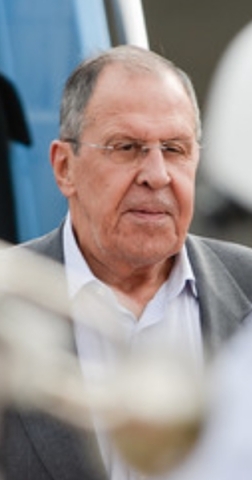News
G20 SUMMIT LEADS TRANSFORMATIVE CHANGE
GLOBAL WHO INVESTMENT DECLARATION

G20 Brazilian President Luiz Lula, U.S. President (Source: Ina von Ber)
USPA NEWS -
Rio de Janeiro – In a significant stride towards global health advancement, the G20 Leaders Summit concluded with the announcement of the World Health Organization (WHO) Investment Round. This innovative mechanism, which facilitates the exchange of debt payments for health investments, was unveiled by Brazil’s Minister of Health, Nísia Trindade, and WHO Director-General, Tedros Adhanom.
The Invest Round aims to bolster financial support for health initiatives, transforming the landscape of global health by prioritizing investments in vaccine research and medical infrastructure. The mechanism is poised to alleviate financial burdens on developing nations, enabling them to direct resources towards essential health services and research efforts. President Luiz Inácio Lula da Silva of Brazil, a vocal advocate for this initiative, emphasized the urgent need for increased funding dedicated to health solutions worldwide. Stressing the disparity in global spending, Lula remarked, "While the WHO receives 2 billion dollars a year to relieve health issues, the world allocates a staggering 2.4 trillion dollars to military expenses. This is the contradiction of the world we live in."
While highlighting the critical importance of this initiative, global leaders called g for equitable access to healthcare investments required to prevent diseases. Reflecting on the lessons learned from the COVID-19 pandemic, Lula voiced his determination to avert future health crises caused by inadequate treatment and lack of essential medical equipment.
The G20 Summit, which included a Health Working Group, served as a pivotal platform for debating pressing global health issues with global leaders spotlighting the need to address inequality, hunger, and poverty as fundamental barriers to achieving widespread health access. Leaders expressed his unwavering commitment to raising sufficient funds for the WHO, ensuring it has the resources necessary to fulfill its critical mission of saving lives and preventing diseases.
The announcement of the WHO Investment Round marks a groundbreaking chapter in international cooperation for health equity, where countries collaborate to transform financial liabilities into health assets. As this initiative takes flight, it reinforces the collective endeavor to prioritize human well-being over geopolitical conflicts, setting a precedent for future international strategies. This visionary approach not only promises to accelerate advancements in healthcare but also underscores the shared responsibility of nations to foster a healthier, more equitable world.
For the first time, climate agendas were integrated within finance sectors, ensuring that environmental sustainability is at the heart of economic policies. This approach is crucial for facilitating a transition to a greener economy, safeguarding our planet for future generations. Impressively, thirty years ago, it was in Rio de Janeiro that the three UN Framework Conventions on Climate Change, Biodiversity, and Desertification were created. Today, we are experiencing the hottest year on record, coupled with more severe and frequent natural disasters such as floods, fires, droughts, and hurricanes. Although progress has been made to avert an even worse fate, leaders agreed that more efforts are needed.
The G20 nations contribute 80% of greenhouse gas emissions. In recognition of their critical role, Brazil, during its presidency, initiated the Task Force for Global Mobilization against Climate Change. This effort involves the cooperation of ministers of Finance, Environment and Climate, Foreign Affairs, and Central Bank leaders to tackle climate issues comprehensively. In collaboration with Secretary-General António Guterres, a call is extended to the G20 to join the UN-Brazil Joint Global Mobilization. This initiative advocates for more ambitious Nationally Determined Contributions (NDCs) to align with the goal of limiting global temperature increases to 1.5 degrees Celsius. The guiding principle is “common but differentiated responsibilities” which is crucial for climate justice. While the Kyoto Protocol, a symbol of challenges in collective climate action, and COP15 in Copenhagen nearly disrupted global climate efforts, five years shy of its tenth anniversary, the Paris Agreement has not yet achieved the necessary results. Urgent action is required. Although the pace may differ among countries, more action can be taken by all.
Developed by G20, members are urged to advance their carbon neutrality targets from 2050 to between 2040 and 2045. For this call to action to be credible, wealthier nations must recognize their historical emissions responsibilities. Meanwhile, developing countries are encouraged to ensure their NDCs address the entire economy and all greenhouse gas emissions.
G20 Summit outcome highlights:
Global Alliance
The summit underscored the urgency of combating hunger and poverty. A global alliance was forged, uniting nations to develop comprehensive strategies aimed at eradicating these pervasive issues and ensuring food security for all. This alliance signifies a collaborative approach towards inclusive growth and equality.
Tax Discourse
Initiative conversations were held on implementing taxes on the super-rich. This discourse marks a pivotal step towards addressing economic discrepancies and redistributing wealth to uplift marginalized communities. It's an essential discourse for creating a balanced fiscal landscape.
G20 Summit outcome highlights:
Global Alliance
The summit underscored the urgency of combating hunger and poverty. A global alliance was forged, uniting nations to develop comprehensive strategies aimed at eradicating these pervasive issues and ensuring food security for all. This alliance signifies a collaborative approach towards inclusive growth and equality.
Tax Discourse
Initiative conversations were held on implementing taxes on the super-rich. This discourse marks a pivotal step towards addressing economic discrepancies and redistributing wealth to uplift marginalized communities. It's an essential discourse for creating a balanced fiscal landscape.
Bioeconomy
A multilateral document on bioeconomy was approved, emphasizing sustainable agricultural practices and innovation in biotechnology. This document lays the groundwork for enhancing resource efficiency and fostering eco-friendly economic growth.
Governance Reforms
There was a clarion call for effective and representative global governance. The summit advocated for reforms that would ensure more equitable participation of all nations in global decision-making processes, fostering transparency and trust among international communities.
Women's Empowerment & Racial Equality
A new working group was launched, alongside a proposed Sustainable Development Goal (SDG), dedicated to promoting women's empowerment and racial equality. This initiative is vital for creating inclusive policies that recognize and uplift diverse voices worldwide.
A multilateral document on bioeconomy was approved, emphasizing sustainable agricultural practices and innovation in biotechnology. This document lays the groundwork for enhancing resource efficiency and fostering eco-friendly economic growth.
Governance Reforms
There was a clarion call for effective and representative global governance. The summit advocated for reforms that would ensure more equitable participation of all nations in global decision-making processes, fostering transparency and trust among international communities.
Women's Empowerment & Racial Equality
A new working group was launched, alongside a proposed Sustainable Development Goal (SDG), dedicated to promoting women's empowerment and racial equality. This initiative is vital for creating inclusive policies that recognize and uplift diverse voices worldwide.
Renewable Energy
A bold commitment was made to triple renewable energy capacity by 2030. This goal reaffirms the world's dedication to reducing reliance on fossil fuels and promoting sustainable energy solutions essential for mitigating climate change.
Vaccine Coalition
A coalition was formed to enhance local and regional vaccine production. This coalition aims to strengthen health infrastructure and ensure equitable access to vaccines, making communities more resilient to future pandemics.
Innovation & AI Governance
The summit introduced a new strategy and task force for innovation and AI governance. This initiative addresses emerging technological challenges and sets ethical standards for AI deployment, ensuring technology serves humanity's best interests.
A bold commitment was made to triple renewable energy capacity by 2030. This goal reaffirms the world's dedication to reducing reliance on fossil fuels and promoting sustainable energy solutions essential for mitigating climate change.
Vaccine Coalition
A coalition was formed to enhance local and regional vaccine production. This coalition aims to strengthen health infrastructure and ensure equitable access to vaccines, making communities more resilient to future pandemics.
Innovation & AI Governance
The summit introduced a new strategy and task force for innovation and AI governance. This initiative addresses emerging technological challenges and sets ethical standards for AI deployment, ensuring technology serves humanity's best interests.
With more than 140 meetings held across 15 Brazilian cities, the G20 Summit has been a dynamic platform for meaningful dialogue and decision-making. As we progress towards impactful change, this summit lays a robust foundation for a future that thrives on cooperation, sustainability, and shared prosperity. Brazil has reached a significant milestone in its 4-year leadership journey among developing nations in the G20. The baton is now passed to South Africa, marking a continuing legacy of pioneering initiatives that aim to reshape our global landscape. Let's roll South Africa!
more information: https://https://www.ambassadorialroundtable.org
Liability for this article lies with the author, who also holds the copyright. Editorial content from USPA may be quoted on other websites as long as the quote comprises no more than 5% of the entire text, is marked as such and the source is named (via hyperlink).

